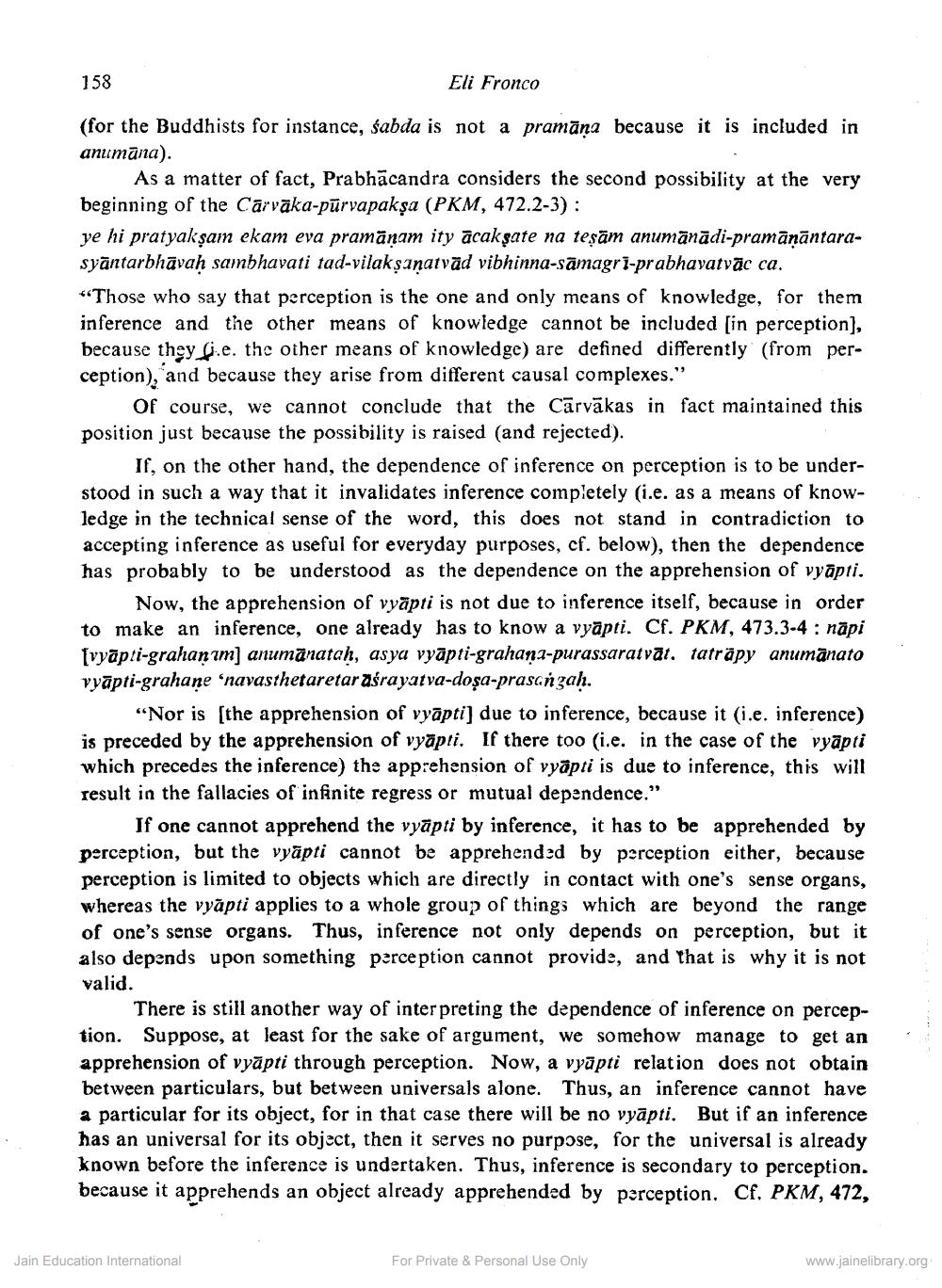Book Title: Paurandara Sutra Author(s): Eli Franco Publisher: Z_Aspect_of_Jainology_Part_3_Pundit_Dalsukh_Malvaniya_012017.pdf View full book textPage 5
________________ 158 Eli Fronco (for the Buddhists for instance, sabda is not a pramāņa because it is included in anumāna). As a matter of fact, Prabhācandra considers the second possibility at the very beginning of the Carvāka-pūrvapaksa (PKM, 472.2-3): ye hi pratyakşain ekam eva pramānam ity acakşate na teşām anumānādi-pramāṇāntarasyāntarbhāvah sambhavati tad-vilaksanatvād vibhinna-sāmagri-prabhavatvāc ca. “Those who say that perception is the one and only means of knowledge, for them inference and the other means of knowledge cannot be included [in perception), because they f.e. the other means of knowledge) are defined differently (from perception), and because they arise from different causal complexes." of course, we cannot conclude that the Cārvākas in fact maintained this position just because the possibility is raised (and rejected). If, on the other hand, the dependence of inference on perception is to be understood in such a way that it invalidates inference completely (i.e. as a means of knowledge in the technical sense of the word, this does not stand in contradiction to accepting inference as useful for everyday purposes, cf. below), then the dependence has probably to be understood as the dependence on the apprehension of vyāpti. Now, the apprehension of vyāpti is not due to inference itself, because in order to make an inference, one already has to know a vyāpti. Cf. PKM, 473.3-4 : näpi (vyāpti-grahanım] anumānatch, asya vyāpti-grahana-purassaratvāt, tatrāpy anumānato vyāpti-grahane 'navasthetaretar aśrayatva-dosa-prasangah. "Nor is (the apprehension of vyāpti] due to inference, because it (i.e. inference) is preceded by the apprehension of vyāpti. If there too (i.e. in the case of the vyāpti which precedes the inference) the apprehension of vyāpti is due to inference, this will result in the fallacies of infinite regress or mutual dependence." If one cannot apprehend the vyāpti by inference, it has to be apprehended by perception, but the vyāpti cannot be apprehended by perception either, because perception is limited to objects which are directly in contact with one's sense organs, whereas the vyāpti applies to a whole group of things which are beyond the range of one's sense organs. Thus, inference not only depends on perception, but it also depends upon something perception cannot provide, and that is why it is not valid. There is still another way of interpreting the dependence of inference on perception. Suppose, at least for the sake of argument, we somehow manage to get an apprehension of vyāpti through perception. Now, a vyāpti relation does not obtain between particulars, but between universals alone. Thus, an inference cannot have a particular for its object, for in that case there will be no vyāpti. But if an inference has an universal for its object, then it serves no purpose, for the universal is already known before the inference is undertaken. Thus, inference is secondary to perception. because it apprehends an object already apprehended by perception. Cf, PKM, 472, Jain Education International For Private & Personal Use Only www.jainelibrary.orgPage Navigation
1 ... 3 4 5 6 7 8 9 10
